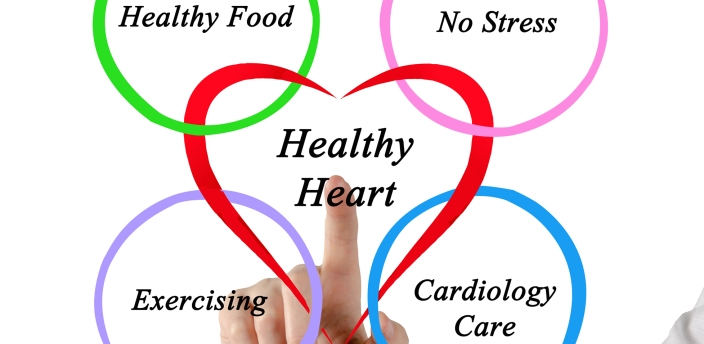As any world-renowned cardiologist would tell you, it is much better to prevent than cure. When it comes to heart health, developing healthy lifestyle habits early in life can go a long way in preventing heart disease—the No. 1 killer of Americans. And with the new “ABCDE approach” for heart disease prevention, living a long and healthy life free of heart disease is simpler than ever before.
Based on the latest research, there are eight important steps that American adults can take to drastically reduce their risk of developing heart disease:
A: Assessing risk for heart disease and taking aspirin when appropriate. In 2013, the American College of Cardiology and the American Heart Association released guidelines stating that every adult should have their cardiovascular risk calculated at least every five years. By taking into account simple factors like age, race, and cholesterol, adults can find out just how likely it is that they’ll develop heart disease in the next 10 years. Click here to calculate your own risk or ask your doctor to assess your risk at your next check-up. Those at increased risk for heart disease should discuss low-dose aspirin to reduce risk of heart attack and stroke, along with any other strategies for lowering heart disease risk.
B: Blood pressure control. High blood pressure, also called hypertension, is a major cause of heart attack and stroke. By monitoring blood pressure and taking steps to control blood pressure, like losing weight, improving diet and taking medication when necessary, serious complications associated with hypertension can be prevented. It’s estimated that 1 in 3 adults have high blood pressure, so it’s important to keep track of your blood pressure over time.
C: Cigarette cessation and cholesterol control. Tobacco use increases risk of heart attack and stroke, and can lead to multiple types of cancers, such as lung cancer and lung disease. The good news is that quitting smoking goes a long way in improving heart health and if you’re looking to quit, you don’t have to go it alone. There are a wealth of tools available that can increase your chances of quitting for good, so it’s important to discuss smoking cessation aids with your doctor.
Having cholesterol checked regularly is also key to heart disease prevention. Making healthy lifestyle choices, like staying active and eating healthy can help keep cholesterol levels in check. Certain patients, like those with high cholesterol or a history of heart disease, may also choose to take cholesterol-lowering drugs called statins to control cholesterol levels. It’s important to discuss potential strategies for lowering cholesterol levels with your doctor.
D: Diabetes treatment and diet control. Diabetes drastically increases risk for heart disease, stroke and other serious conditions. Maintaining a healthy blood sugar, making healthy lifestyle choices and taking medication, when necessary, can help prevent complications associated with diabetes. Adults can also help prevent both heart disease and diabetes with a healthy diet. Based on the latest research, that means eating plenty of fruits, vegetables and whole grains, and incorporating low-fat dairy products, chicken, fish, legumes and nuts into ones diet. A heart-healthy diet also limits consumption of sweets, sugar-sweetened beverages and red meat.
E: Exercise. Guidelines recommend that adults get at least 30 minutes of physical activity most days of the week to prevent heart disease and promote good health. Research also shows that spending too much time sedentary increases risk for heart disease. It’s important to not only incorporate exercise into your day, but also avoid sitting for long periods of time when possible.


Leave a Reply